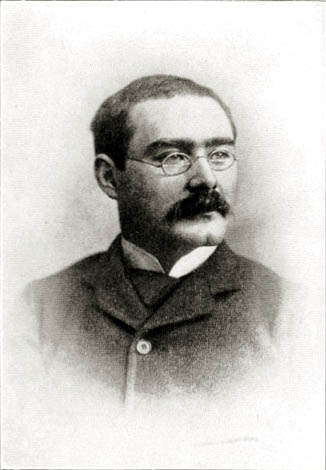Rudyard Kipling
 | Rudyard Kipling (December 30, 1865 – January 18, 1936) was a British poet, novelist, and short story writer notable for his tales and poems of British soldiers in India and for his children’s stories. He was born in Bombay to a family that thought of themselves as “Anglo-Indian”. His father taught sculpture and design and his mother was a notably vivacious woman. He was sent to England as a youth to be exposed to British customs and education, attending preparatory school United Services College in Devon. Unable to afford to attend Oxford or obtain a scholarship, he returned to India as a young man to write for the Civil and Military Gazette in Lahore, now part of Pakistan, where he found his calling as a writer. He started publishing stories and decided to relocate in London, traveling the Pacific and crossing North America in the process. In 1892 he married Carrie Balestier, an American, and relocated to the family property near Brattleboro, Vermont, where he built a house modeled on Mughal architecture and wrote The Jungle Book, Captains Courageous, and other stories and poems. He returned to England in 1896, settling first in Devon and then acquired Bateman’s in Sussex in 1902, an ancient house built in 1634 with a mill and 33 acres, where he remained for the rest of his life. Kipling
was very popular in his peak years, which coincided with the prime of
the British Empire. He was awarded the Nobel Prize for literature in
1907, the first English language writer to receive the Nobel and to this
day its youngest recipient. To some degree he has become associated
with conservative imperialist perspective of the colonial English, but
it bears mention that his work focuses on the moral sense of duty and
responsibility inherent in that culture and less so any sense of
superiority. More to the point, he is best remembered as a prolific,
imaginative and heartfelt stylist who was an innovator in the short
story form and possessed a genius for narrative. |
The Jungle Book
Sometimes the tart nature of motivational stories can be more easily received and internalized if th..
$9.99

